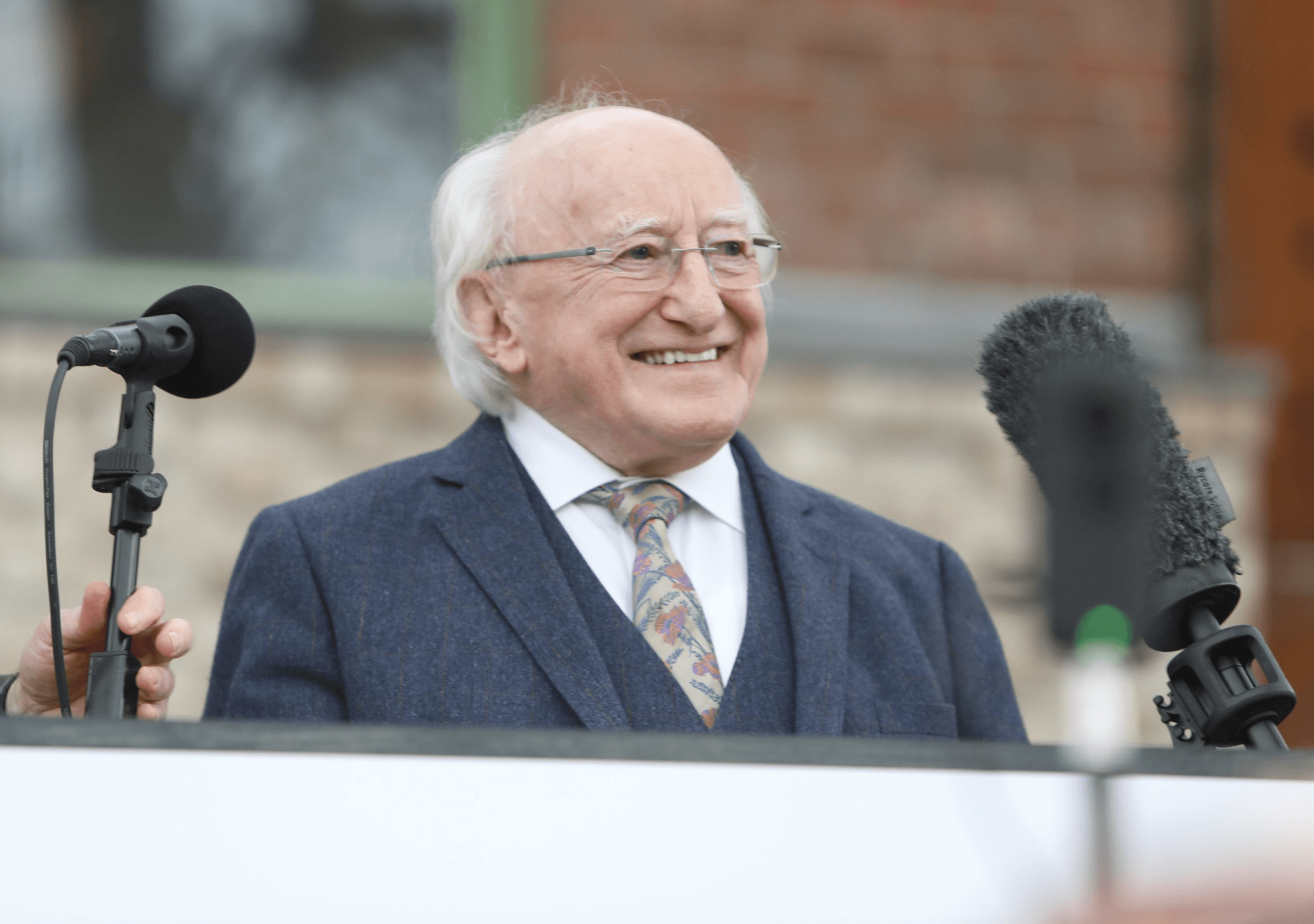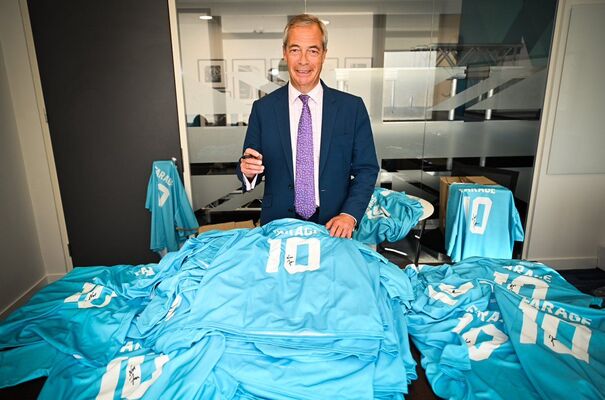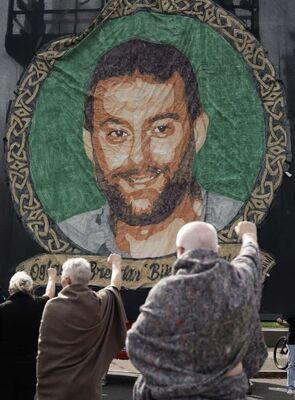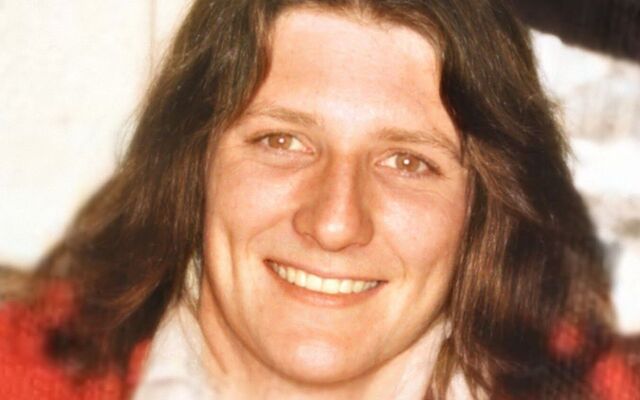WHEN I was younger I had a stammer. I don’t know what age I was. Somewhere between seven and ten perhaps. A youngster! I grew out of my speech impediment and I have very little recollection of my stammering phase but I was reminded of it when I was on the phone to a friend in Ard Oifig in Dublin last week. . For no apparent reason she told me that she sometimes has a stammer when she is on the phone.
“It isn’t obvious,” I told her.
And it wasn’t.
“Its a nervous thing,” she went on. “It also happens the odd time when I’m at a meeting and it’s coming to my time to speak. I sometimes get anxious and my stutter starts. Just as I begin to make my contribution.”
I told her about my childhood stammer.
“You will grow out off it,” I said reassuringly. “I knew a guy in jail and he had an awful stoppage but he could sing like Tony Bennett. No sign of any impediment when he was leading us in a singsong. And then there was Daithí O. He had a wild stutter but only in English. When he was speaking in Irish his diction was perfect.”
“That’s funny,” she said.
“Big Bob used his very pronounced stammer to his advantage,” I told her. “He made people laugh, especially when he was getting to a serious point and his stutter sent him off on a tangent. He obviously knew what words or letters triggered his stoppage and he had a wee bridging word – it might have been ‘sort of’ or ‘f***ing sort of’ – to get him back to his main message again, much to everyone's amusement. The letter S was a challenge to him.”
“Vowels can do that as well,” she said. “You know A, E, I ,O and U? They can trip you up."
I told her: “I remember Bob trying to talk to another friend of ours who had a desperate stammer. It was hilarious. They were talking for half an hour but they barely got past the first few sentences. Eventually they gave up talking and just wrote notes to each other. Otherwise they would still be trying to get to the point.”
“That's mad,” she said. “The worst thing ever is when somebody else tries to complete the word the stutterer is trying to say. Some people – and I know they are trying to help – do that and invariably it is the wrong word and that frustrates the stutterer even more, especially when the helpful one speaks very slowly and suggests a second or even a third or fourth word. That makes things worse.”
“I know what you mean,” I said. “Thanks for the yarn. It was nice, nice, to talk, talk, talk to you."
“Me, me, me too, too,” she said.
“This could be a long good, good, goodbye,” I replied.
“Just say say say slán,” she laughed.
“Slán,” I said.
The floodgates of horror
UACHTARÁN na hÉireann, Michael D Higgins, does not mince his words when it comes to Israel’s genocidal war against the Palestinian people. Last weekend he addressed the annual commemoration of Ireland’s An Gorta Mór – The Great Hunger – of the 1840s. The commemoration is a reminder of our colonial experience and of a potato plight which became a genocide because of the policies of the British government. Over a million died and millions more fled.
Michael D has addressed the National Famine Commemoration several times in recent years, but with a Presidential election later this year this will be his last as Uachtarán na hÉireann. He said: “No other event in our history can be likened to the Great Famine, either for its immediate, tragic impact, or its legacy of involuntary emigration, cultural loss, increased decline of the Irish language and demoralisation.”
SPEAKING OUT: President Higgins has shown the way for other world leaders when it comes to Gaza
But his strongest words of criticism were reserved for those states that are using hunger as a weapon of war, and in particular for Israel and its imposition of “a forced starvation in Gaza” which we are witness to “daily on our television screens". Uachtarán na hÉireann referenced the recent comments by United Nations Secretary General António Guterres who warned that, “As aid dries up, the floodgates of horror have re-opened... Gaza is a killing field – and civilians are in an endless death loop.”
In Spain the Spanish Prime Minister Pedro Sanchez accused Israel of being a “genocidal state". Speaking in the Spanish Parliament, Prime Minister Sanchez asserted that “we do not do business with a genocidal state. We do not.”
It is time that the Irish government emulated the example of Uachtarán na hÉireann, Michael D Higgins and others in the international community who have had the courage to speak out against Israel. An Taoiseach Micheál Martin must urgently pass into law the Occupied Territories Bill and impose sanctions against Israel. Anything less is to be complicit in what is happening in the Gaza Strip and the West Bank. He needs to make it clear that “we do not do business with a genocidal state. We do not.”
The Nakba revisited
Last week Palestinians across the world commemorated the Nakba – the Catastrophe. In 1948 almost a million Palestinians fled as refugees from their homes as the Israeli state was forcibly carved out of Palestine. For those who defend or are silent on Israel’s genocide in Gaza the Nakba is an uncomfortable reminder of when the gun was brought into Palestine. For that reason, it is often ignored.
The violence against the Palestinian people 77 years ago reflects current accounts of Israel’s brutal actions in the occupied Palestinian territories and Israeli prisons.
On April 9, 1948, Jacques de Reynes, who was the head of the International Red Cross in Palestine, arrived at Deir Yassin, a small Palestinian village a few miles from Jerusalem. As he entered the village he was confronted by members of the Irgun – a Jewish paramilitary organisation. He later recalled: “All of them were young, some even adolescents, men and women armed to the teeth: revolvers, machine guns, hand-grenades, and also cutlasses in their hands, most of them still bloodstained.”
The Commander of the Irgun told de Reynes they were involved in a “clean-up”. He went into a Palestinian home where “I found some bodies cold. Here the ‘cleaning up’ had been done with machine guns, then hand grenades. It had been finished off with knives, anyone could see that. The same thing in the next room, but as I was about to leave, I heard something like a sigh. I looked everywhere, turned over all the bodies, and eventually found a little foot, still warm. It was a little girl of ten, mutilated by a hand grenade, but still alive... everywhere was the same horrible sight.”
According to a report to the United Nations by the British authorities in Palestine: “The deaths of some 250 Arabs, men, women and children, which occurred during this attack, took place in circumstances of great savagery. Woman and children were stripped, lined up, photographed, and then slaughtered by automatic firing and survivors have told of even more incredible bestialities. Those who were taken prisoner were treated with degrading brutality.”
The massacre in Deir Yassin, and in other Palestinian villages, was part of a carefully designed strategy to assist in the ethnic cleansing of large parts of Palestine. It was led by Menachem Begin and Yitzhak Shamir, who would later become Prime Ministers of Israel. The mass murder of Palestinian civilians in Deir Yassin and massacres in other Palestinian villages led to tens of thousands of refugees fleeing into neighbouring Arab states. It is estimated that three quarters of all Palestinians were expelled as the new Israeli state stole 78 per cent of Palestine.
Several weeks later on, May 15, 1948, the United Nations, under intense pressure from the United States, voted to recognise the state of Israel.
So, when someone claims that Israel has the right to defend itself against a civilian population, remember the Nakba ('Catastrophe' in Arabic) and tell them that there will be no peace built on the genocide, subjugation and denial of Palestinian national rights. Many in the international community then and today stand indicted for facilitating genocide. Silence is complicity.






